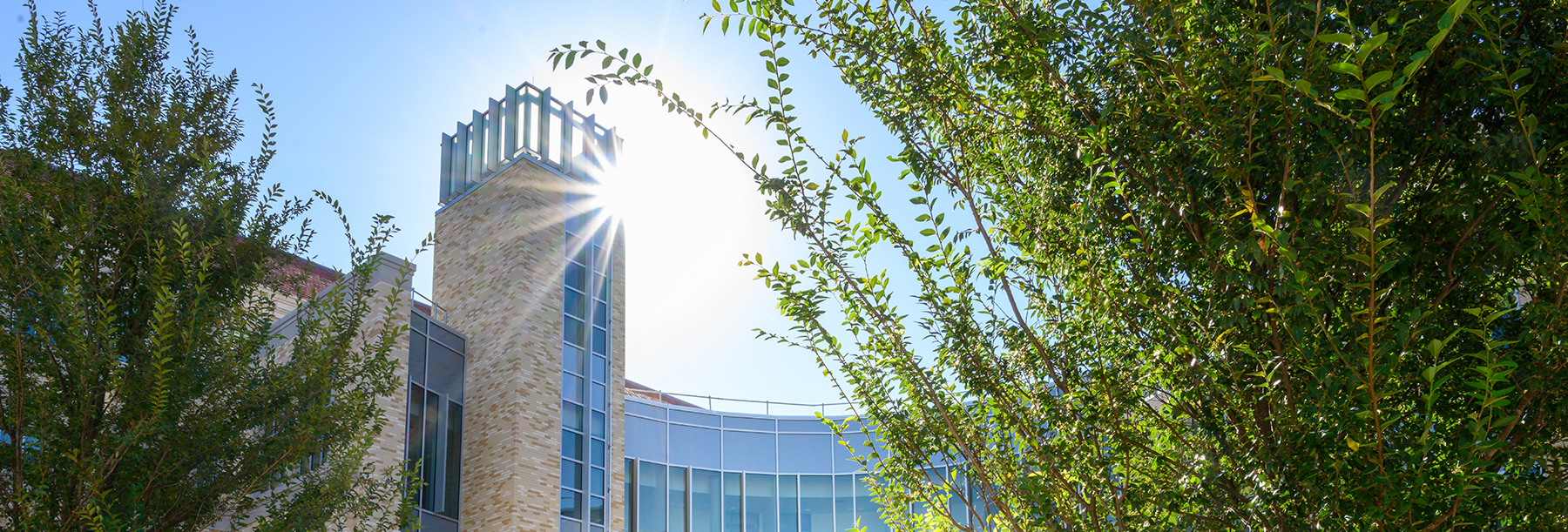Diversity is a vital part of the Neeley EMBA program – from diversity of student backgrounds, to the countries we visit in our study abroad trip, to the industries we study in those countries.
August 10, 2018
Diversity is a vital part of the Neeley EMBA program – from diversity of student backgrounds, to the countries we visit in our study abroad trip, to the industries we study in those countries. The 2018 class chose industries including gems and precious metals, tourism and hospitality, luxury retail and steel – the last of which turned out to be challenging, as the new tariffs made it difficult to find steel businesses overseas who were willing to meet with us. All part of the unique challenges of global business.
We asked a handful of 2018 students and spouses to share their experiences overseas. Check out the highlights below.
HOW BUSINESS VARIES ACROSS CULTURES
Perhaps the most intriguing takeaway was how different cultures and government policies affect business in different countries.
From Mandie Ware, Chief Financial Officer at KJE, Environmental and Civil Engineering:
- “India has an emerging economy. They have a very large and culturally diverse population. Even though India has made great strides to make their country more business-friendly, bribes and kickbacks continue in normal business transactions. Even though many of India’s population is poor, there is a sense of community and peace. They are a population that takes life as it comes and can change based on whatever is given to them.
- “Dubai is the second city we visited, and it is just beautiful. All of their buildings are relatively new. They have the biggest and best of everything – the tallest building, the only seven-star hotel. If you want to be awed, it’s the place to be. Business wise, the UAE is controlled by the emirates (the original families) in the region. They only make up 10-15 percent of the population. The other 85-90 percent of the population are immigrants that have come in to work. To open a business in the UAE, an emirate would have to own 51 percent of your business. There are free trade zones, in which one can open a business and own 100 percent, but many of those areas are shipping ports and storage areas. Though the infrastructure is new and beautiful, it seemed as if many of the office buildings were empty. There was a feeling of “build it and they will come.” They have all of the infrastructure needed for growth and tourism, but it seemed as if people were missing.
- “Culturally, Sweden is much closer to the USA than the other two countries we visited. The people were cheerful and easy to get along with, and a sense of humility and calmness pervades their culture. Sweden is more socialist than what we are in the USA. They have around 50 percent personal income tax, which is used to provide free health care and education for their citizens. They also have additional sales and luxury taxes on all items bought, and they have corporate taxes of 21 percent. Per our visit with our jeweler, it’s hard for a company to make profit when taxes are so high. The architecture is old, though very well kept. It was almost like stepping into a city from the 1600s. Just beautiful!”
From Nicoleta Bugnariu, Ph.D., Professor Physical Therapy and Interim Dean, School of Health Professions, UNTHSC:
- “The last place I would have expected to see Mahatma Gandhi’s teachings was in the DLF Emporio, the one and only exclusive luxury mall in Delhi, India. Yet, there it was, on the wall in the antechamber of the mall manager, a framed picture with a Gandhi quote about the customer: ‘He is not dependent on us, we are dependent on him. He is not an interruption to our work, he is the purpose of it. He is not an outsider to our business, he is part of it. We are not doing him a favor by serving him. He is doing us a service by giving us the opportunity to do so.’ I felt that customer culture translated into practice as we walked through this luxury mall, stepping inside the stores to touch and see the extravagant, colorful and elaborate wedding attires created by Indian designers. It was very clear that we had no intention nor means to buy these garments, yet everyone was smiling, welcoming and ready to serve us.
- “I did not have the same feeling in the Dubai Mall, even though the same luxury brands are there. In the UAE, the culture is about being the best, the brightest, the tallest, the fastest, the largest – everything at the superlative. The Dubai Mall is all about making money and displaying wealth.
- “Opposite of the superlative culture of the UAE is the Swedish core value of lagom – being just right, in moderation, not too little, not too much. I felt at home in Sweden because of that. I went to the Midsummer’s Eve festival … the biggest Swedish festival. I prepared myself for large crowds, loud noises and a good number of obnoxious, intoxicated people. There were no drunk people, the music level was loud enough but without making your ears hurt or requiring you to scream when speaking to the person just in front of you. The crowds were civilized, dancing around the pole in what seemed a harmonious, family-oriented fun day in the park, where both the baby and the grandma can find a place to fit.”
HOW BUSINESS IS THE SAME ACROSS CULTURES
There were also overarching truths we saw across all the countries we visited.
From Chris Davis, Plant Manager at Peterbilt Motors Company:
“The most interesting things I learned about each country was key insights into their economy and how they have positioned themselves on the world stage. Each country and organization we visited revealed interesting and thought-provoking information as I compared and contrasted it to our own country and economy.”
From Chris Albertson, Managing Partner, Western Wealth Advisors Texas:
“I took a little piece from each visit that I feel I can apply to my organization immediately. Agility and cross-functional teams are key takeaways for me. Almost every leader credited their company’s success to those two attributes. Sledgehammer's agility and nimbleness in its operational side have allowed it to remain stable even with oil prices dropping over the past few years. Companies such as Tata, OM Logic, Softbank Energy all contribute their success to their ‘people talent.’ By having cross-functional teams that can work together and bring different perspectives and talents, they can bring a project to life faster and avoid pitfalls within the operational side.”
From Mary Pettit, J.D., Senior Attorney,Pettit Law:
“Our cultures are quite different and some places in the world are at very different places from a business-model perspective, but the people, well, we are all very similar. People around the world share some very basic characteristics – making our huge world, a very small world – one that is not difficult to become familiar with and comfortable in at all.”
BUILDING MEMORIES AND RELATIONSHIPS
In addition to business lessons, our students always return home feeling richer – both in experience and in relationships.
From Kimberlee Nuszkowski (student spouse), Health System Specialist, Boehringer Ingelheim:
“I thought we would have most days arranged, in actuality there was a lot of flexibility and no pressure from the group or leaders to participate in activities if there was something else we wanted to do … The [Grand Mosque in Dubai] was definitely an experience I will remember. I have never been in such a vast area that was so clean. You took your shoes off upon entering, and your feet did not have a spec of dirt upon leaving. … [Also,] I can honestly say I was so impressed at the closeness of the classmates … This group will have lifelong ties and connections. For me, it solidified what makes this program so unique and worth every penny of our investment.”
From Chris Albertson, Managing Partner, Western Wealth Advisors Texas:
“A few of my cohorts and their spouses decided to go on a desert safari in Dubai. Personally, that was one of the best experiences of my life. We had a guide who walked us through the history of the desert, various wildlife and vegetation, while my wife and I enjoyed a seven-hour excursion through the desert. We rode in vintage Land Rovers, stopping for a falcon show, sparkling cider and a dinner that offered a sample of all the native local cuisine. We rode camels and watched a traditional marriage ceremony dance, which involves rifles and drums. I was extremely tired after, but it was worth every minute.”
From Nicoleta Bugnariu, Ph.D., Professor Physical Therapy and Interim Dean, School of Health Professions, UNTHSC:
“[I am never] going to forget the little girl, her face plastered on the window of our taxi as she [was] desperately trying to sell her roses. Her hair, face and clothes [were] dirty, [and] the yellow stains on her teeth [were] a stamp of poor nutrition and lack of dental hygiene, yet there [was] fire in her eyes. She [was] the strong one. This [was] my biggest personal ‘aha!’ moment of the trip. It’s not about me counting my blessings, being humbled and grateful for the opportunities I have. That’s a good attitude, but it’s not enough. It’s about recognizing their strength [and] extending them my respect and admiration, not my pity.”
From Chris Davis, Plant Manager at Peterbilt Motors Company:
“The trip cemented several lifelong friendships that have developed during the first year of the program.”
From Brenda Grijalva, D.C. (student spouse):
“I became better acquainted with my spouse’s classmates. I enjoyed their company throughout the trip! From the orientation back in August, I quickly bonded with several spouses. I can honestly say that I have formed some friendships that will last a lifetime!”
Learn more about how the international trip fits in with our curriculum.

